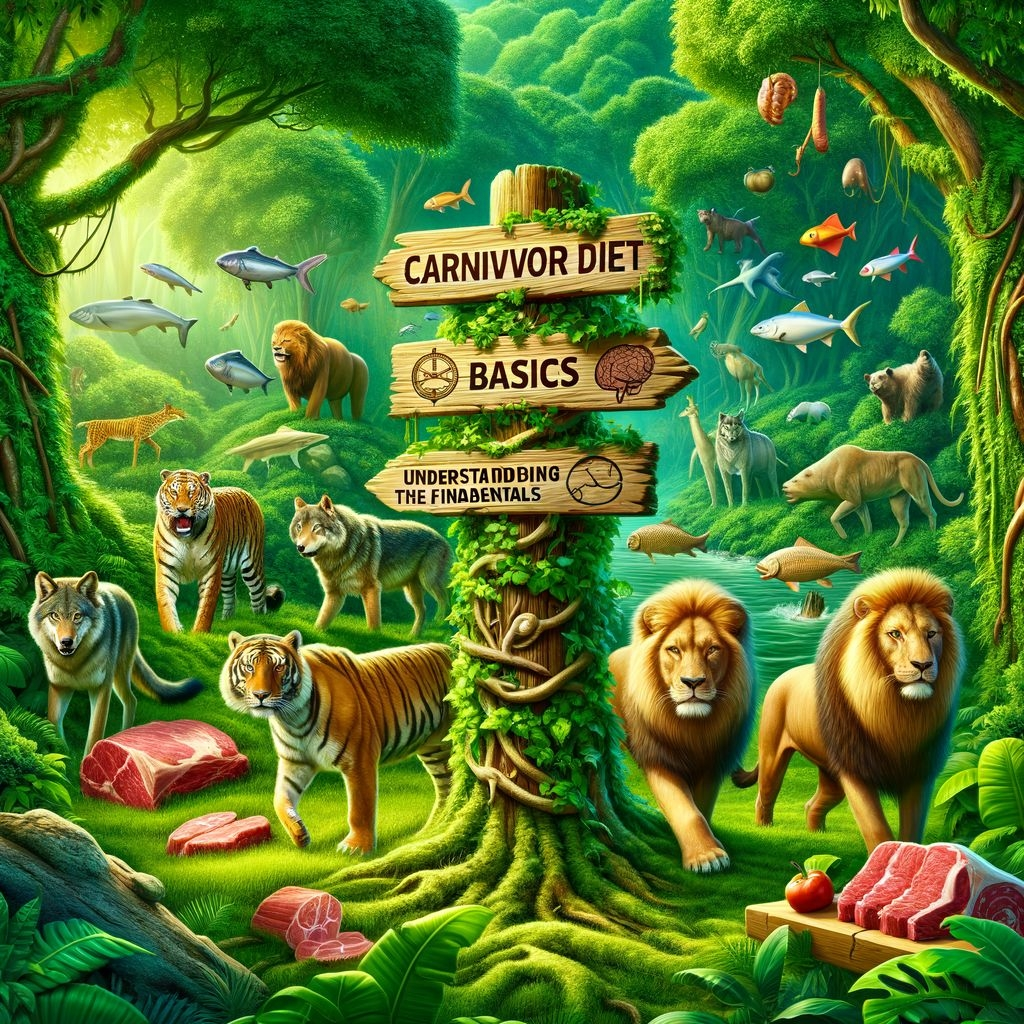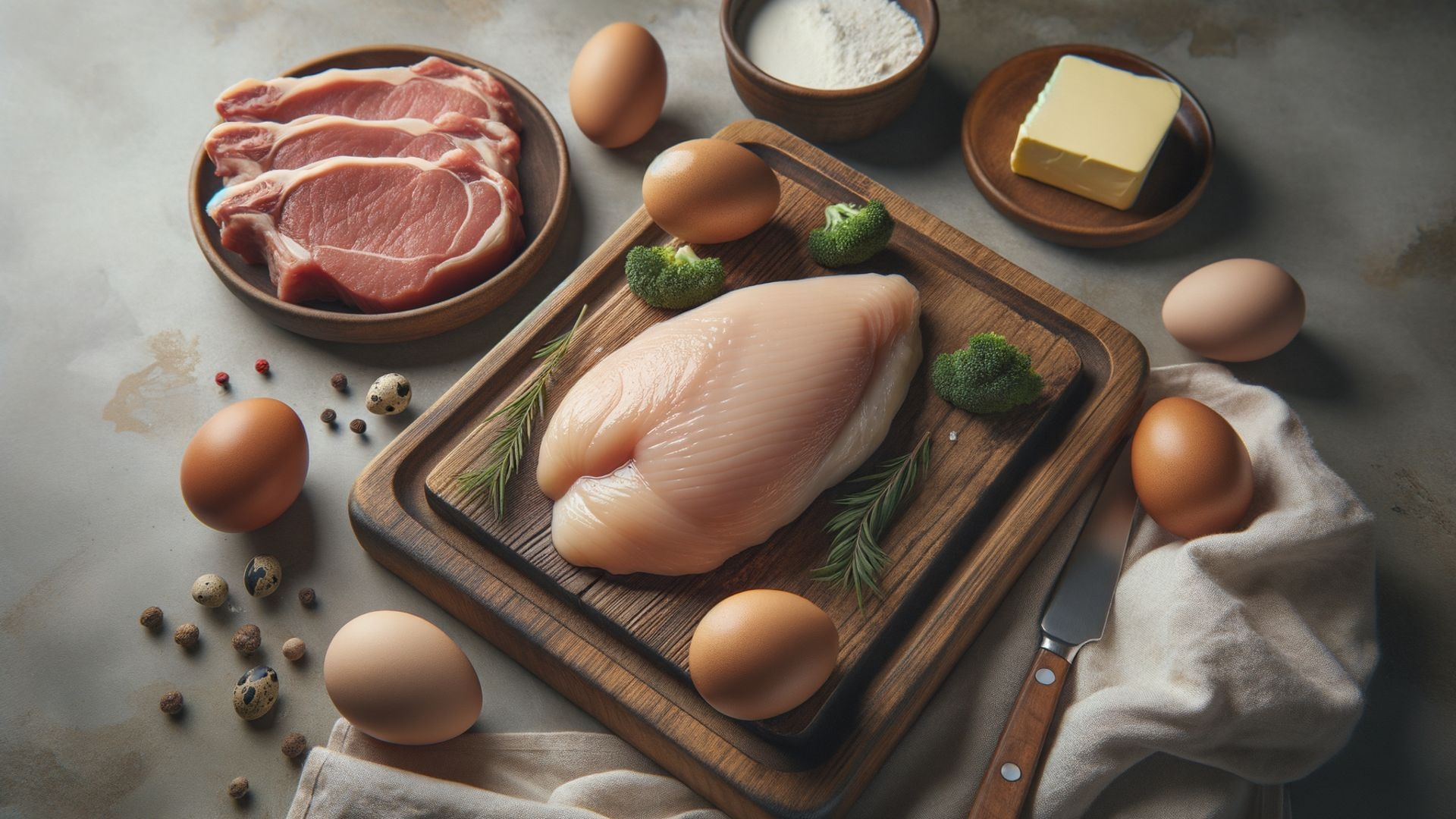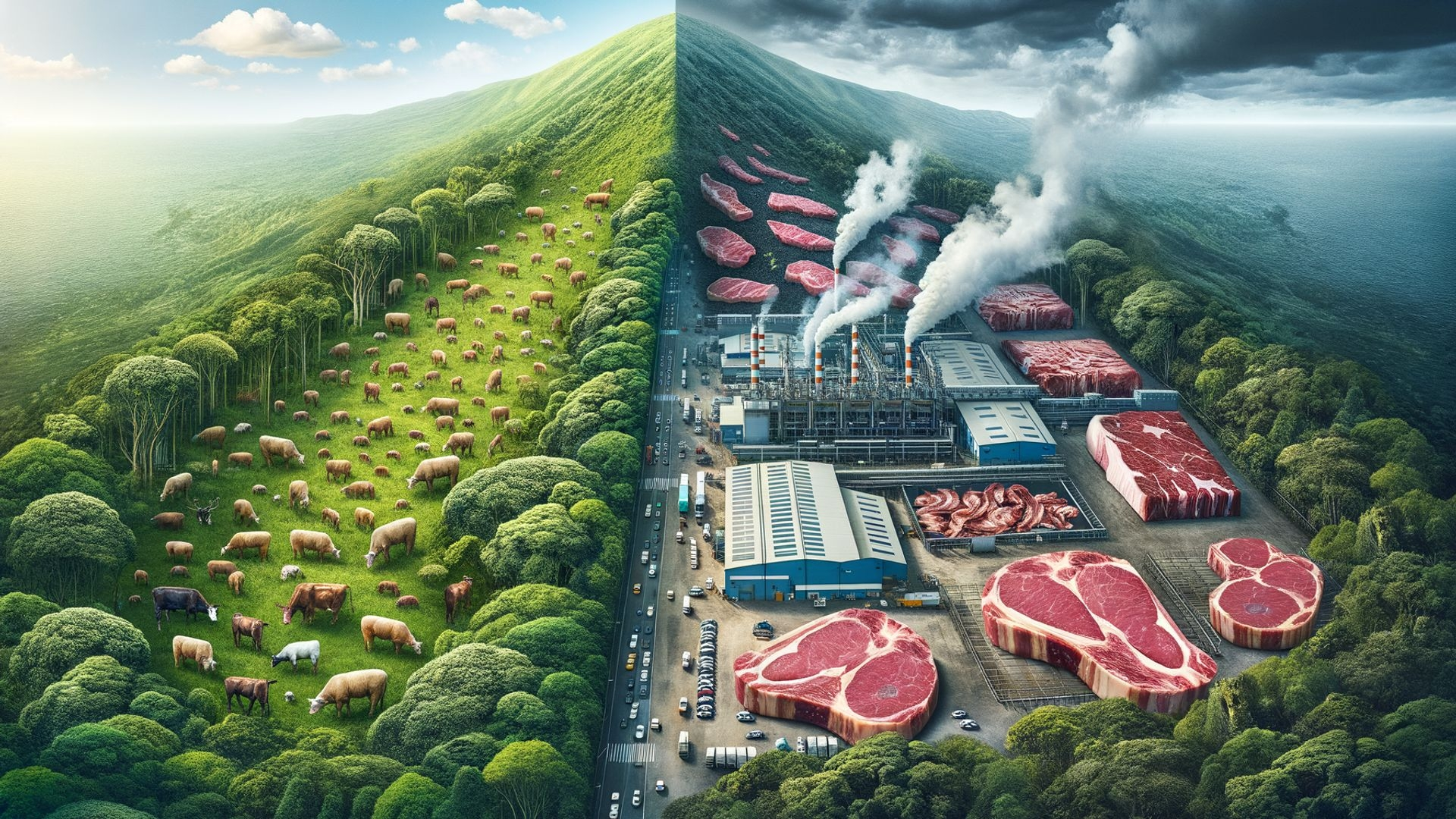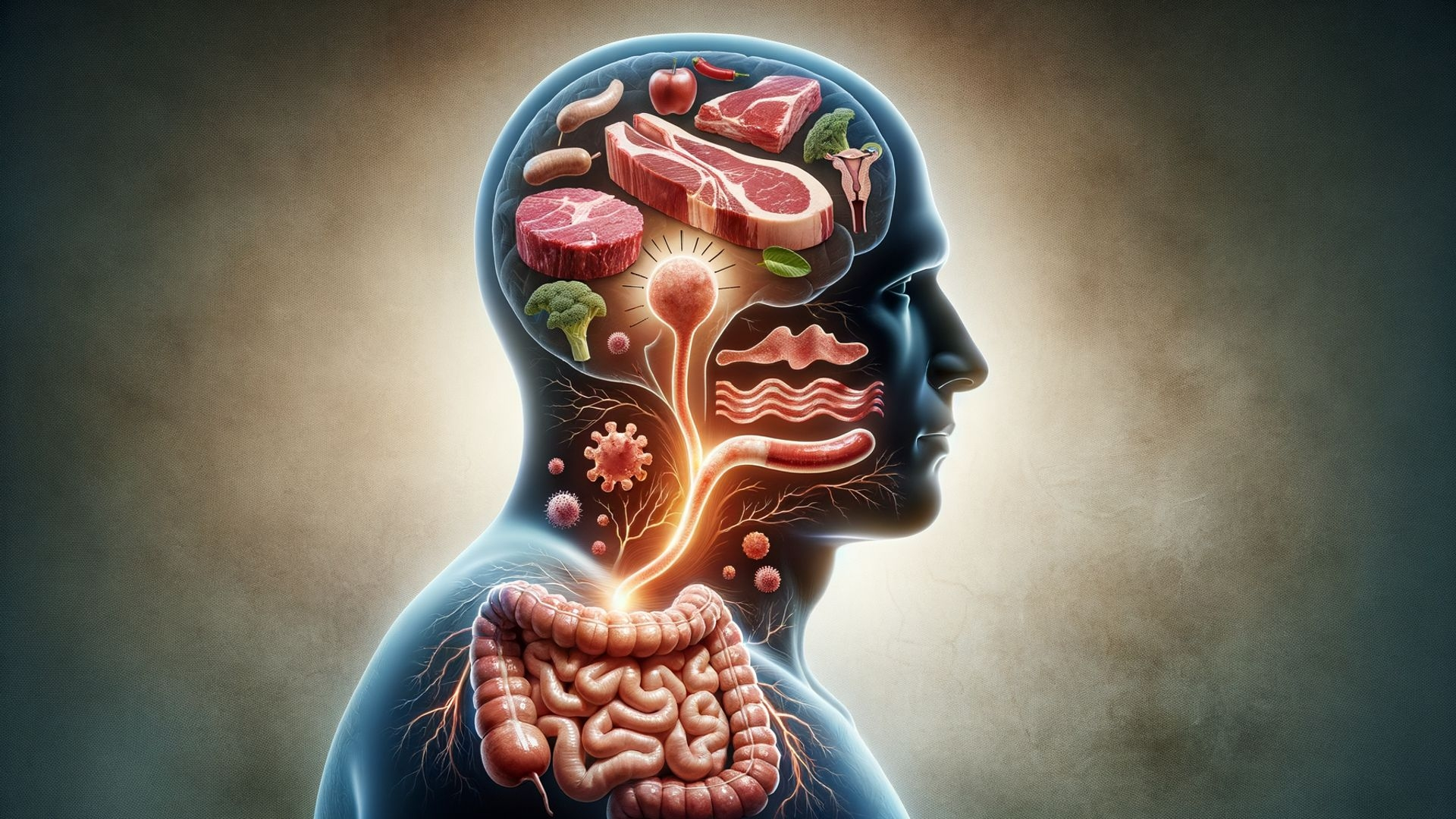Top 5 Carnivore Diet Mistakes to Avoid in 2024: Common Carnivore Pitfalls and How to Overcome Them
The carnivore diet, which focuses on consuming animal-based foods exclusively, has gained popularity in recent years due to its potential health benefits. However, like any dietary approach, there are common pitfalls that individuals may encounter when following this strict eating regimen in 2024. It is essential to understand these mistakes and learn how to navigate them effectively to optimize your carnivore diet experience.
Carnivore Diet Basics: Understanding the Fundamentals
Embracing a carnivore diet can offer various benefits to individuals seeking to improve their overall health and well-being. By eliminating plant-based foods and focusing on animal products, followers of this diet may experience increased energy levels, better mental clarity, and potential weight loss. However, despite its advantages, beginners often make mistakes that can hinder their progress on the carnivore journey.
Dr. Anthony Chaffee, a leading expert in the carnivore community, emphasizes the importance of proper guidance and education when transitioning to a carnivore diet. He recommends individuals to gradually adjust their eating patterns and pay attention to their body’s responses as they make dietary changes. One common mistake that beginners make is not consuming enough fat.
Animal fats are essential on a carnivore diet as they provide energy and support various bodily functions. Incorporating fatty cuts of meat, bacon, butter, and tallow can help maintain satiety and energy levels.
Another mistake is not eating enough variety. While a carnivore diet mainly consists of animal products, including a variety of meats such as beef, poultry, pork, and fish can ensure you are receiving a wide range of nutrients. Additionally, incorporating organ meats like liver, heart, and kidneys can provide essential vitamins and minerals that may be lacking in muscle meat alone.
Many beginners also neglect hydration and electrolyte balance. As your body adjusts to a carnivore diet, it is important to stay well-hydrated and supplement with electrolytes to prevent dehydration and maintain proper muscle function.

Optimizing Your Carnivore Diet: Avoiding Pitfalls
One common mistake that individuals make on a carnivore diet is overlooking their electrolyte balance. Electrolytes play a crucial role in maintaining hydration and supporting various bodily functions.
It is essential to ensure you’re getting an adequate amount of electrolytes, especially when following a diet that restricts many traditional sources of these minerals. Incorporating organ meats into your carnivore diet can also help prevent nutrient deficiencies and provide essential vitamins and minerals that may be lacking in muscle meats.
By diversifying your food choices and including organ meats like liver, kidney, and heart, you can enhance the nutritional profile of your diet. When selecting cuts of meat for your carnivore diet, it’s important to choose high-quality, nutrient-dense options to meet your body’s nutritional needs. Opt for grass-fed and pasture-raised meats whenever possible to ensure you’re getting the best possible protein and fat sources.
Additionally, it’s essential to listen to your body and adjust your diet as needed. Some individuals may thrive on a strict carnivore diet, while others may benefit from including small amounts of plant foods or supplements to meet their individual needs. Another common mistake is not consuming enough fat on a carnivore diet.
Fats are essential for providing energy and supporting various bodily functions. Incorporating fatty cuts of meat, butter, ghee, and other healthy sources of fats can help you maintain satiety and ensure you’re getting enough calories on a carnivore diet.

Maximizing Fat Intake: Ensuring You Meet Your Needs
Eating a high-fat diet is a key aspect of the carnivore approach, as fat intake is crucial for energy production and hormone balance. Ketogenic adaptation, which occurs when the body switches to utilizing fat for fuel instead of carbohydrates, is a common goal for many carnivore enthusiasts. By focusing on healthy fats like grass-fed butter, tallow, and fatty cuts of meat, you can support your body’s fat-burning mechanisms. Incorporating collagen-rich foods such as bone broth and connective tissue can also benefit your overall health on a carnivore diet. Collagen plays a vital role in supporting gut health, joint function, and skin elasticity, making it a valuable addition to your carnivore meal plan.
Additionally, it is important to prioritize high-quality animal products that are pasture-raised and ethically sourced. This not only ensures that you are consuming nutrient-dense foods but also supports sustainable farming practices. While the carnivore diet may seem restrictive to some, there is actually quite a variety of foods that you can enjoy within the guidelines. From ribeye steaks to bacon-wrapped scallops to lamb chops, there are plenty of delicious options to keep your meals interesting and satisfying.
It’s important to listen to your body and make adjustments as needed to find what works best for you. Some individuals may benefit from incorporating organ meats like liver and heart for additional nutrients, while others may find that dairy products like cheese and heavy cream work well for them.
2024 Trends: The Evolution of the Carnivore Diet
In the coming year, several trends are expected to shape the carnivore diet landscape. One notable shift is towards a one meal a day approach, where followers of the diet consume all their daily calories in a single sitting. This strategy is believed to promote satiety and simplify meal planning for carnivore practitioners. Another emerging trend is the focus on carnivore-friendly electrolytes, with new products entering the market to support optimal mineral balance for individuals on a carnivore diet.
These specialized electrolyte supplements aim to address the unique needs of carnivores and ensure they’re meeting their electrolyte requirements. Furthermore, the growing popularity of carnivore-focused fast food options is expected to provide convenient choices for individuals following this dietary framework. These fast-food offerings cater to carnivores’ specific needs and preferences, making it easier to stay compliant with the carnivore diet while on the go.
Additionally, there is a growing interest in grass-fed and pasture-raised meats among carnivore enthusiasts, as they seek higher quality and more sustainable options for their animal-based diet. This trend towards ethical and environmentally sustainable meat sourcing aligns with the values of many carnivore followers.
Lastly, the incorporation of organ meats is becoming more prevalent in the carnivore diet community, as they are nutrient-dense and provide a variety of essential vitamins and minerals. With the increased awareness of the health benefits of organ meats, more carnivore practitioners are exploring ways to incorporate them into their meal plans.
Overall, these trends indicate a continued evolution and refinement of the carnivore diet, offering followers new approaches, products, and options to support their health and well-being in the coming year.

Mistake Prevention Strategies: Navigating the Carnivore Lifestyle
To avoid common carnivore diet mistakes, it’s crucial to educate yourself on the fundamentals of this dietary approach and dispel any misconceptions that may arise. Building a support system within the carnivore community can provide motivation and accountability as you navigate the challenges of the carnivore lifestyle. Flexibility is also key when following a carnivore diet, as it’s essential to tailor the approach to your individual needs and preferences. While maintaining the core principles of the diet, incorporating flexibility can help you sustain your carnivore journey long-term and optimize your health outcomes.
Additionally, it’s important to listen to your body and adjust your carnivore diet as needed. Pay attention to how different foods make you feel and make adjustments accordingly. It’s also important to prioritize nutrient density and include a variety of animal-based foods to ensure you are getting all the essential nutrients your body needs.
Lastly, be mindful of your mental and emotional well-being while following a carnivore diet. Stay connected with supportive communities, practice self-care, and seek guidance from healthcare professionals if needed. Remember, the goal of the carnivore diet is to optimize your health and well-being, so be kind to yourself throughout your journey.
Common Mistakes To Avoid on The Carnivore Diet Frequently Asked Questions:
What are the top 5 mistakes to avoid when following a carnivore diet?
The top 5 mistakes to avoid on a carnivore diet include not consuming enough organ meats, neglecting electrolyte balance, not getting enough fat, consuming only one meal a day, and not including a variety of cuts of meat in your diet.
How can electrolyte balance affect your experience on a carnivore diet?
Electrolyte balance is crucial on a carnivore diet as it can impact your energy levels, muscle function, and overall well-being. Make sure to include sources of potassium and sodium in your diet to maintain electrolyte balance.
Why are organ meats important on a carnivore diet?
Organ meats are packed with essential nutrients like vitamin B12, iron, and zinc that are necessary for optimal health. They play a crucial role in providing key micronutrients that may be lacking in muscle meat.
How can collagen-rich foods benefit those following a carnivore diet?
Collagen-rich foods such as bone broth and connective tissues can help support joint health, gut function, and skin elasticity. Including these foods in your diet can provide essential amino acids for overall well-being.
What role does fat play in a carnivore diet?
Fat is a primary source of energy on a carnivore diet and helps you feel satiated. Ensuring you’re getting enough fat, especially from sources like fatty cuts of meat, is essential for maintaining energy levels and supporting overall health.
How does a carnivore diet differ from a ketogenic diet?
While both diets emphasize high fat intake and restrict carbohydrates, a carnivore diet focuses solely on animal products and excludes plant foods. This means that a carnivore diet may provide different benefits and challenges compared to a ketogenic diet.
Is it necessary to consume multiple meals a day on a carnivore diet?
While some people thrive on one meal a day (OMAD) on a carnivore diet, others may prefer multiple smaller meals. Experiment to see what works best for your energy levels, hunger cues, and overall well-being.
How can following a species-appropriate diet benefit individuals on a carnivore diet?
A species-appropriate diet, which mimics what animals in the wild would eat, can provide essential nutrients that your body needs for optimal function. By focusing on cuts of beef and other animal products, you can meet your nutritional needs more effectively.






